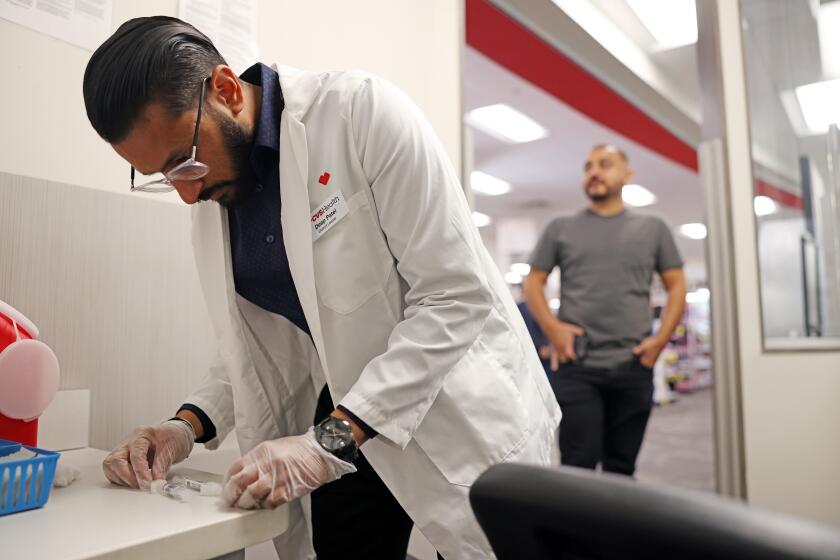Doctor’s orders divert a girl from ‘frenetic’ to fine
Before I had my daughter I thought everything I did mattered. The tone of voice I used, how much I held her, the way she was disciplined, or not.
Now she’s 6 and I’m wiser. I know there is a flower contained in her soul that needs only to blossom, and my job is to get out of her way . . . if I can.
But there was one decision that was crucial to my daughter becoming who she is -- and that was choosing her doctor.
Being wary or neurotic, depending on your definition, I interviewed several doctors before deciding on the woman who became my daughter’s pediatrician. My question to these doctors was always the same: “We’re adopting from a foreign orphanage and are worried about things like malnutrition and mental or physical delays. Since these are not conditions typically found in American children, do you think you’ll recognize them?”
Of course, every doctor assured me they would, but the woman I chose went one better. She, an Indian American, told me she volunteered each year in a clinic in India and was familiar with conditions one does not usually see in Studio City.
And so we brought our daughter home. We were smitten, overwhelmed and blind. Our daughter did “interesting” things such as slam her head against the bedroom wall and coat her body in ice cream. She was always in motion, yet couldn’t walk at 17 months. We thought everything was fine.
“She just got out of an orphanage,” we’d tell ourselves. “Of course, she’s curious about her new world. She’ll grow out of it.”
Everyone we knew agreed. . . except her pediatrician. “I see red flags,” she said during a visit. Handing me a phone number, she said, “Call the Regional Center and get her assessed.”
I was luckier than most parents. I’d heard about Regional Centers. I knew they are responsible for giving children in California adequate therapy to get them up to speed and ready for school. I knew that up until a child is 3, the therapy is free.
I just didn’t know how difficult it would be to get them on the phone. I tried the number the doctor had given me. And then I tried again. And again. No one ever returned my calls.
So I gave up. “She’ll outgrow it,” I told myself. Luckily, I also told the doctor. She demanded that I keep trying. And so I did.
Once I reached our Regional Center, they tested my daughter. The official diagnosis was sensory integration dysfunction and apraxia (difficulty speaking); the unofficial diagnosis was: “She’s frenetic.” And so they started her in occupational, behavioral and speech therapies. Eventually, she went four days a week.
This year, our daughter graduated from kindergarten and no one -- not her teachers, not other parents, not her friends -- can tell she was ever behind.
To celebrate, I called her pediatrician. Because of our insurance, we stopped going to her a while ago. But I wanted her to know what had happened to our daughter because of her insistence.
And so I told her, “On your worst days, the kind of days when you wonder why you became a doctor at all, I want you to think about my daughter and always remember that you changed a child’s life.”
Jamie Simons is a writer living in Burbank with her husband and very talkative daughter.
To submit an article for My Turn, e-mail health@latimes .com or write to Health, 202 W. 1st St., L.A., CA 90012. Articles should be 500 words or fewer.



